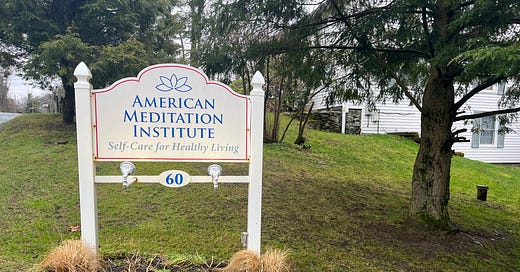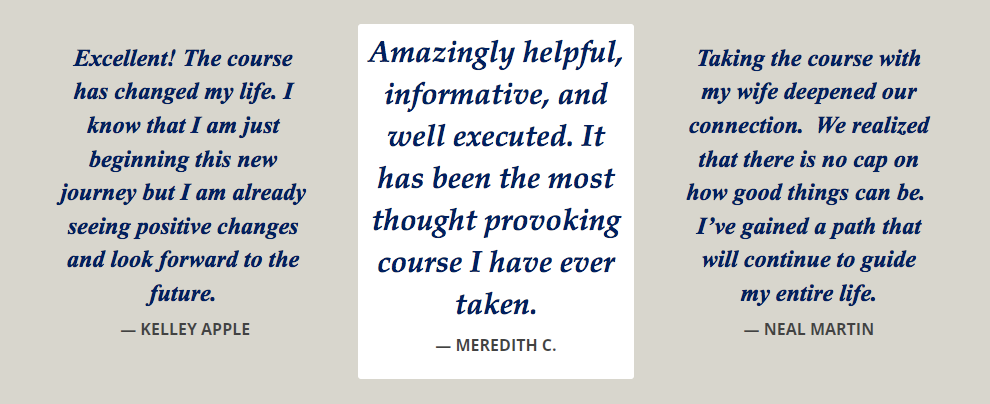There's a New (Old) Type of Yoga in Town
At Averill Park's American Meditation Institute, founder Leonard Perlmutter teaches students the 6,000-year-old practice of training their minds.
This post was made possible by our friends at the American Meditation Institute.
Had I not known it was there, the American Meditation Institute (AMI) would have been one of the last things I expected to find driving through an Averill Park neighborhood. But indeed, on a recent Thursday morning, I found myself in the Sadhana Mandir Temple of Spiritual Discipline, speaking with spiritual teacher, philosopher, author and AMI founder Leonard Perlmutter. Yes, in an Albany suburb.
Leonard, who also goes by Ram Lev, is a direct disciple of Indian yoga guru Swami Rama. He founded AMI in 1996 to share the knowledge he had obtained over 45 years of studying and experimenting with Yoga Science, the world’s oldest health and wisdom tradition. But I’m not talking about holding downward-facing dog or tree pose in a class at The Hot Yoga Spot. At AMI, yoga—as it has for thousands of years—encompasses much more than physical movement.

“There’s some misunderstanding about what yoga is in our culture,” Leonard says. “We have a very physical culture. Yoga is equated with exercise, which is true in part, but that's a limited perspective. There’s an entire Science of Yoga, which is like an umbrella that has different aspects to it. Chief among them is the mind. And with the exception of learning how to memorize and imitate, nobody ever taught us how to fully train the mind.”
That’s exactly what Leonard and his wife, Jenness Cortez Perlmutter, have set out to do at AMI. “There are four functions of the mind that determine the thoughts that we think, the words that we speak, the actions that we take and the consequences that we experience,” Leonard says. “The conscience is the only function of the mind that makes a decision. The other three functions—the ego, the senses and the unconscious mind—they’re just advisors. They’re lobbyists. Each has its own point of view. They’re loud and they’re pushy, and while they’re often wrong, they’re never in doubt.” So while your conscience knows that you shouldn’t have a second serving of dessert, it’s being bombarded by the other three functions of the mind, which are lobbying for another slice of cake. “In the presence of this mental clamor, the conscience loses its capacity to make life-enhancing decisions based on unerring Super Conscious Wisdom,” Leonard says. “As a result, the conscience can only rubber-stamp the loudest voice it hears. And very often the result is painful.”
Luckily, the ego, senses and unconscious mind can be trained using Yoga Science to trust the conscience to make the right decision. “That’s where the music starts,” Leonard says. “That’s where healthy lifestyle choices are created.”
AMI offers several different courses, but its Foundation Course gives students the practical tools needed to train their minds, as well as the opportunity to experiment with Yoga Science on small, seemingly insignificant things (like deciding whether or not to have another slice of cake). That way, students develop a track record of trusting their conscience when it comes time to make bigger decisions. “The most powerful and therapeutic knowledge is experiential,” Leonard says. “Otherwise, we’re just relying on someone else’s suggestions.”
The Sunday after meeting Leonard, I virtually attended his Foundation Course class that focused on meditation. (Each week in the six-week semester, Leonard offers an overview of a different aspect of his Yoga Science curriculum.) While I had imagined I’d be sitting in on an impersonal lecture, the class started with Leonard personally asking each of the four students (two of whom were there in person, and two of whom attended via Zoom) how their practice is going, and answering any questions they had. Eventually, he got to the slideshow and lecture portion of the class, which covered how to successfully meditate, before leading the class in a guided meditation. One of the students in attendance had taken the course in the past, and got so much out of it that she signed up to take it again.
The beauty of AMI’s teaching is that it’s not a religion; rather, aspects of Yoga Science span all religions. “The challenge for the human being is that when the ego, senses and unconscious mind are unruly and we don’t train them, the conscience cannot access Super Conscious Wisdom from the intuitive library of wisdom that resides at the core of every human being,” Leonard says. “Christians call it the Christ. Muslims refer to it as Allah. Jews refer to it as Adonai. Many call it Divine Mother. All of a sudden you see all these different principles of all these religions…and recognize that it’s all based on Yoga Science.”
And even if you’re not religious, there’s immense, practical value in what the Foundation Course offers. In 2009, AMI had attracted several physicians, who loved the teaching. They suggested that Leonard apply to the American Medical Association for credentials to teach physicians as part of personnel development requirements. AMI was accepted, and a clinical study was done. “We just got the results in December,” Leonard says. “The training lowered stress levels. It lowered burnout levels. It increased students’ compassion for fellow human beings, as well as for themselves. So that was big. This teaching now has a proven clinical study behind it that scientifically substantiates that it works. It’s not just me telling you that it works.”
If you’d like to experience the transformational effects of Yoga Science for yourself, you can sign up for the next six-week Foundation Course, which begins June 2. Classes are held both in person at the AMI headquarters and on Zoom on Sundays from 6:30-8:30pm.
—Natalie






